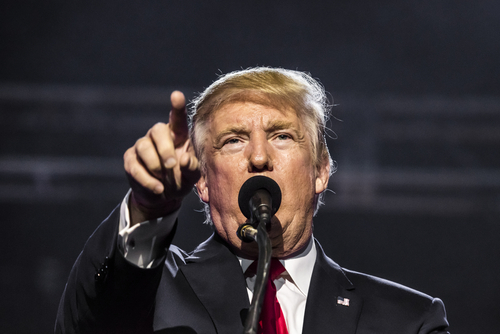
In a bold move that underscores the ongoing battle within the Republican Party, MAGA Senate candidate Cara Castronuova has filed a lawsuit against the New York Republican Committee. The suit alleges that the committee is engaging in unconstitutional practices by imposing restrictive ballot eligibility laws that effectively block pro-Trump candidates from running for office. This legal challenge is not just about one candidate's fight to be on the ballot but represents a broader struggle for the soul of the Republican Party and the principles it stands for.
Cara Castronuova, whose commitment to the MAGA movement and President Trump's America First agenda is unwavering, has been a staunch supporter of Trump since his iconic escalator descent in 2015. Her political stance is firmly rooted in core conservative values, advocating for pro-life policies, the Second Amendment, secure borders, and religious freedom.
CALL TO ACTION: MAGA Senate Candidate and RINO Hunter Cara Castronuova Files Explosive Lawsuit Against New York Republican Committee! RINOS Accused Of UNCONSTITUTIONALLY Blocking Pro-Trump Candidates via @gatewaypundit https://t.co/auaUn9vmix
— The Gateway Pundit (@gatewaypundit) April 4, 2024
Despite her dedication and alignment with the party's base, Castronuova finds herself at odds with the New York GOP establishment, which she accuses of favoring candidates who do not share these commitments.
The crux of Castronuova's lawsuit centers around the requirement for candidates to collect 15,000 signatures within a mere 37 days to qualify for the ballot—a task that is daunting and, according to the lawsuit, disproportionately burdensome to candidates not chosen by the state party apparatus. This requirement is seen as a deliberate barrier to entry, designed to maintain the status quo and prevent genuine conservative voices from challenging incumbent or establishment-preferred candidates.
‘The Biggest Loser’ trainer Cara Castronuova sues NY GOP in bid for Senate https://t.co/7s5CX2pHmD pic.twitter.com/16Gv0HQIWJ
— New York Post (@nypost) April 2, 2024
Historically, similar challenges to restrictive ballot laws have been mounted, with notable figures like John McCain and Steve Forbes filing lawsuits in 2000 over equal protection violations related to ballot access. These precedents highlight the ongoing issue of electoral barriers that disenfranchise both candidates and voters, undermining the democratic process.
Castronuova's legal battle is not just a personal vendetta; it is a call to action for all Republicans who believe in fair play and democracy. The lawsuit seeks to ensure that all candidates, regardless of their political backing within the party, have a fair chance to present their case to the voters. It challenges the party to live up to its professed ideals of freedom, democracy, and equal opportunity.
The response from the New York GOP and its implications for the party's future are yet to be seen. However, this lawsuit could serve as a catalyst for change, prompting a reevaluation of how candidates are selected and how the party can better align itself with the principles it claims to uphold.
As the legal proceedings unfold, the Republican Party finds itself at a crossroads. Will it embrace the principles of democracy and open competition, or will it continue to protect the interests of a select few at the expense of its base? The outcome of Cara Castronuova's lawsuit may well determine the direction the party takes in the years to come.













